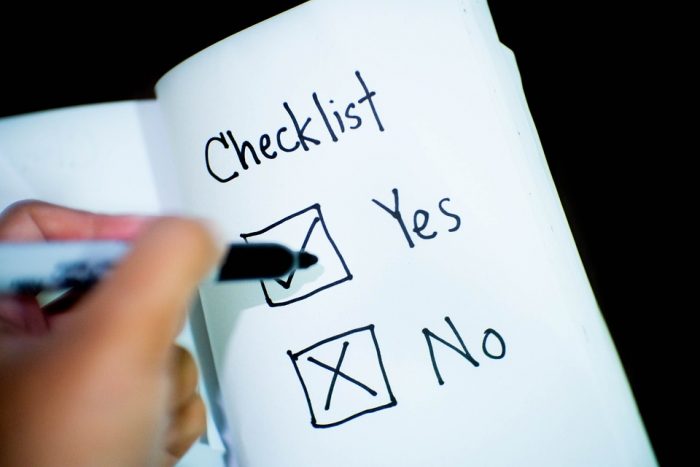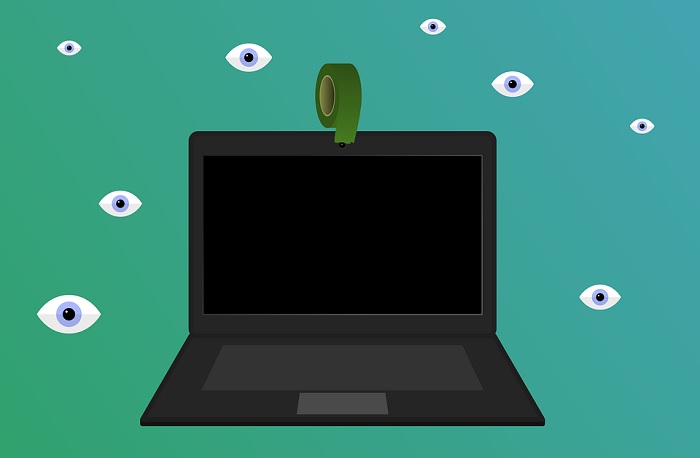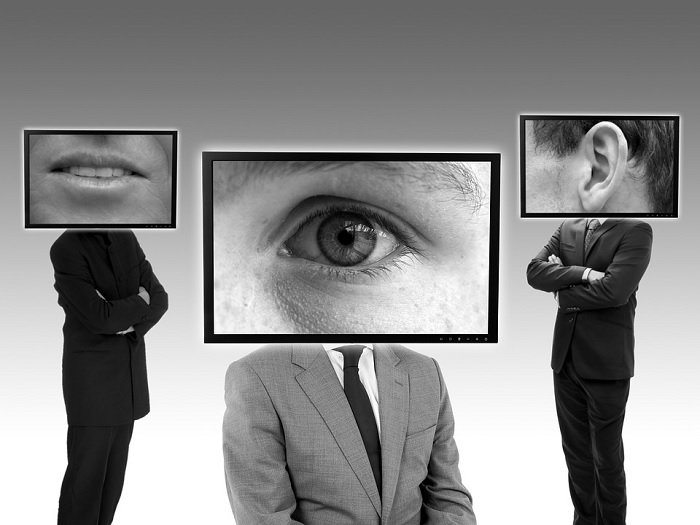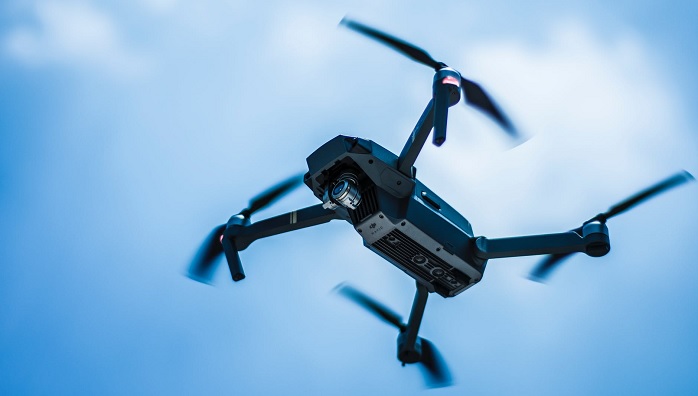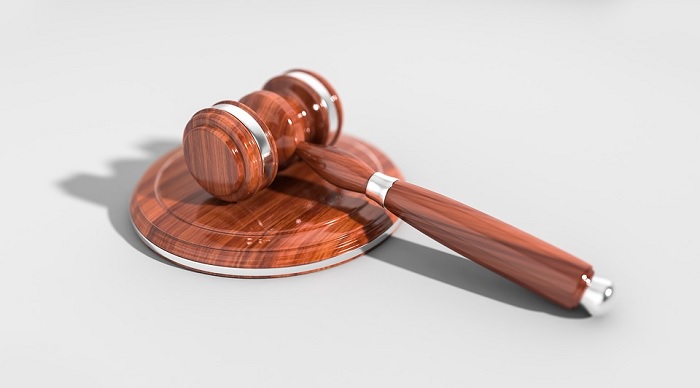When you purchase through links on our site, we may earn an affiliate commission. Here’s how it works.
How to Know if You’re Victim of Government Spying
Technology has done a lot for the ordinary citizen. It's democratized knowledge and broadened free speech. At the same time, technology has been just as good to the powers that be.
The internet, in particular, has brought the eye of the government into every home. At least potentially. We carry around devices that can track our locations and give up personal information to companies like Facebook. The state of tech today,
Mass Surveillance - A Fact of Life
In this article when I refer to government spying, it's specifically targeted surveillance against you as an individual. If the question is whether the government is spying on you in general, then the answer is almost certainly "yes."
When the question is whether they are watching you in particular, then it becomes much more complicated. If the government goes about its job in a competent way, you'll never know that they are watching. I do believe however that government competence is the exception rather than the rule. So if you are lucky enough to have a government that's not good at its job, you might be lucky enough to realize when they are targeting you.
Doing a Risk Assessment
Just believing the government is watching you without any good reason is just an expression of paranoia. Government resources are limited, although technology is expanding it rapidly.
This means you have to apply the same sort of thinking to yourself that the state would when deciding whether you are worth keeping an eye on. Let's look at some potential factors that could make you a person of interest.
Who are You Associated With?
Association is a strong way to measure risk when it comes to people. If you go to talks hosted by people the state takes a dim view of, you can be sure a note has been made somewhere.
Should you express opinions on social media for groups that are considered extremist or at best socially dubious, that raises your profile.
If you take an active role in organizing or speaking for such a group you might as well leave some milk and cookies for the CIA guys in your chimney.
You're Family of Someone They Definitively Want
If you're a family member, friend or close acquaintance of someone you know the government is looking for, then chances are they are going to be keeping an eye on you at least until their main prize is in the bag.
Are You Rich and Powerful?
If you're a CEO of a major company or have a million followers on your political YouTube channel, you might attract attention from the government because of your prominence. This alone is often enough for Big Brother to keep at least basic tabs on you. Human societies organize themselves into networks, and the rich and powerful are often a major nexus on those networks. So watching influential individuals is an efficient use of intelligence resources. The higher you go in society, the more wind you'll catch.
Mistaken Identity
The FBI watch list alone has more than a million names on it. There are only so many common names, and if you are unlucky enough to share a name with someone who is already on the watchlist, you might get spied on by accident. Unfortunately, most names are hidden from the public, but if you're also named Osama Bin Laden, then you might have good reason to expect some personalized surveillance.
You've Been a Nuisance in Sensitive Places
Did you throw a tantrum or punch a TSA agent the last time you were at an airport? While many can express sympathies, these and other similar acts can get your name put on a watch list. So maybe take a deep breath and count to ten instead.
Explicit Signs of Surveillance
If you think that your personal profile and what you're doing in your life would give the state a reason to pay special attention to you, then it's a good idea to keep your eyes and ears open. There may be some signs that you are being watched.
Don't I Know You?
Personally, I'm not good with either faces or names. So I wouldn't always realize that I'm seeing the same person over and over again. Still, that might be an excellent way to know if you're under watch. Do the delivery guy and the guy sitting in the coffee shop you frequent every day look eerily similar? It might just be a coincidence, but if you keep running into this sort of thing, there may be more to it.
The Party Van
It's, of course, a cliche at this point, but the surveillance vehicle disguised as a civilian vehicle is a thing. If there's a cable company van, delivery vehicle or some other similar car just hanging out in your street for no reason, that's a little weird. Especially if it goes on for days.
Fly the Unfriendly Skies
If you are denied a plane ticket or get "randomly" selected every single time you have to pass through airport security, then there's a good chance some G-men are keeping an eye on you.
An Unwanted "Present" Under Your Car
While it's much easier to hack your phone these days, dedicated GPS tracking units that can be stuck to the bottom of a car or some other hidden nook are still a possibility. If you have reason to suspect your movements are being watched, it might be time for a little DIY car inspection. If you do find something, don't mess with it. You could leave it and then be aware that your trips are being logged. Alternatively, report it to the police.
Weird Communication Glitches
There's no real solid evidence for this, so take it with a pinch of salt. Apparently wiretapping technology can sometimes cause interference. So if you are suddenly getting glitches in your phone calls or television picture that weren't there before and stick around for a while without apparent cause, that might be a sign. Some have also reported clicking sounds and interference noises they've never heard before while on calls.
Staying off the Government Radar
If you want to avoid government spying on you or the people close to you, prevention is better than cure. Avoid doing the sorts of things that would bring attention to you. If you can't do that, then avoid advertising the fact.
Anything you do in a public space, in front of a camera or on the internet is a potential trap.
We've written a ton of guides on TechNadu meant to help keep your activities private. Most if not all of them apply to the problem of staying out of state-sponsored trouble.
For example, there are ways to confuse facial recognition software that analyses video footage. You can also refrain from writing things on social media containing keywords that are likely to draw state attention.
When you have conversations with people over the phone or on internet voice services, or text chat apps be careful. Don't discuss politically sensitive subjects and don't use keywords that are dodgy. Regardless of the context. On the off chance that mass surveillance is happening, computer software can pick up on certain hot words and zone in on you in particular.
This is especially important in light of the Wikileaks revelation that the CIA might be hacking smart TVs, phones, TVs and other devices to listen in on the public.
Protecting Yourself on the Net
The Internet is a relatively easy place for the state to spy on you. They have the power to coerce service providers into sharing your browsing history. They can monitor specific sites and log the IP addresses of everyone who visits. That information can be traced back to you.
There's almost nowhere to hide on the net where the state can't reach, but there are plenty of tools to protect yourself with.
You can use technologies such as VPNs, Tor and virtual machines to create a hardened shell of privacy. No protection is perfect, but these methods are formidable. A great VPN to get started with for anyone is ExpressVPN, which I can really recommend.
Also, remember to switch off or tape over any webcams or other internet-connected cameras. Those are hacked relatively easily.
Conducting Yourself Under Surveillance
Let's say that it's too late for prevention. You're pretty sure that they are already watching you. So what should you do? If you think you are on a government watch list for no good reason, you can always try talking to law enforcement to see whether they have a redress program. For example, if you are on the no-fly list, the FBI maintains, you can follow a redress procedure through them.
If that's not an option, then the best thing you can do is to go about an average day. Don't say or do anything that might look bad to a person listening in. Unless you are an ultra-hot potato, the chances are that eventually you'll be left alone so that they can watch some other poor schmucks do nothing exciting. The worst thing you could do is to act erratically or try to confront someone you think is in on it. Just play it cool.
David Versus Galactus
As an individual, there's not a whole lot you can do if your government decides to watch you personally. It's not a David vs Goliath situation. It's more like a David vs. Galactus situation. In other words, unless you are also working for a government, you're resources are a grain of sand compared to the mountain of state clout.
That doesn't mean that government spying can't be fought. While you can't do much about being spied on, you can actively work to limit government power. If you care about your privacy and the privacy of others, then it might be worth joining organizations that have a strong privacy lobby. You can also consider giving your vote to politicians running on pro-privacy platforms. Also, make a point of letting your local government representatives know that you are against the government having broad powers to spy on citizens. Especially extralegal abuses.
This is only really true for countries that have healthy democracies, human rights, and freedom of speech. If you live under an extremely oppressive regime then keeping your head down and nose clean is the best advice for most people.
Know The Laws
The final, significant part of your defense against government spying is the law. It's a good idea to buy some decent legal insurance just on general principles. You should also frequent sites that outline what the government can and cannot do legally. If you are an American, then a great example resource is the ACLU (American Civil Liberties Union) who do great work. They make a point of educating the public on their rights and expose the government when they break privacy laws.
In general, in most free nations, you can't get in trouble because of things captured with illegal surveillance. While you can't run counter-intelligence as an individual, you can use the law to defend yourself.

